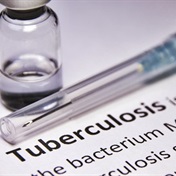
A revolutionary new way of testing for tuberculosis (TB), the GeneXpert can dramatically reduce the time it takes to get a diagnosis for multi-drug resistant TB, but bottlenecks in the health system are making it difficult to get patients on treatment quickly, a study has found.
Research presented by the Desmond Tutu TB Centre at Stellenbosch University shows that the turnaround time to get a diagnosis has been cut from 25 days to less than a day with the Gene Xpert, a rapid molecular diagnostic test, commonly dubbed Xpert.
But
a laboratory result which provides a result very quickly doesn’t mean that the
patient will go on treatment immediately, says Pren Naidoo, head of operational
research at the Desmond Tutu TB Centre at Stellenbosch University.
Very expensive
A
study in Cape Town, where the Xpert has been rolled out, revealed that people
were diagnosed within a day, but it took an average of 17 days for them to
start treatment.
“The poor management of laboratory results in clinics and difficulties in tracing patients that don’t return for appointments contribute,” said Naidoo. Closing the gaps in the health system and community education is required to optimise the benefit of this expensive new technology.
“The cartridges needed for the test, as well as the Xpert machine are very expensive. We can see the huge increase in laboratory costs...a 120% increase compared to previous tests,” said Naidoo.
Naidoo said the ultimate solution would be to have a point-of-care test at all clinics, such as in the HIV test, where people could get their diagnosis on the spot.
South
Africa has the largest rollout of the Gene Expert technology in the world, with
testing sites across several provinces and 279 Xpert machines installed in
National Health Laboratory Services (NHLS) labs and district hospitals, with
another nine on order.
Drug-resistant TB
Yogan Pillay, Head of HIV, TB and Maternal and Child Health Programmes at the National Department of Health, said it wasn’t possible to have the Xpert in every clinic, as it was very expensive and impractical in some places, particularly in deep rural areas, as the machine requires uninterrupted electricity.
He was optimistic about its role in helping to diagnose more Multidrug-Resistant (MDR) TB cases.
Apart from finding whether a person is infected with TB, the Xpert is able to find out whether a patient is resistant to one of the common TB drugs, rifampicin.
Pillay said there was an urgent need for South Africa to detect more MDR-TB cases.
He said while there were over 15 000 cases of MDR-TB in South Africa, only 7 000 people were on treatment.
“We’re missing 50% of the diagnoses. The gap is shrinking but we need to put far more people on treatment,” says Pillay.
MDR-TB is resistant to the usual TB drugs and can take up to two years to treat with medications that are extremely expensive. It’s also more toxic than the standard medication. In some cases, it can have severe side-effects, including deafness.
One
of the challenges faced in South Africa is to ensure that people who fall ill
with TB have the correct treatment and follow through with it until the end of
the course, so that they don’t develop drug-resistant TB.




 Publications
Publications
 Partners
Partners










